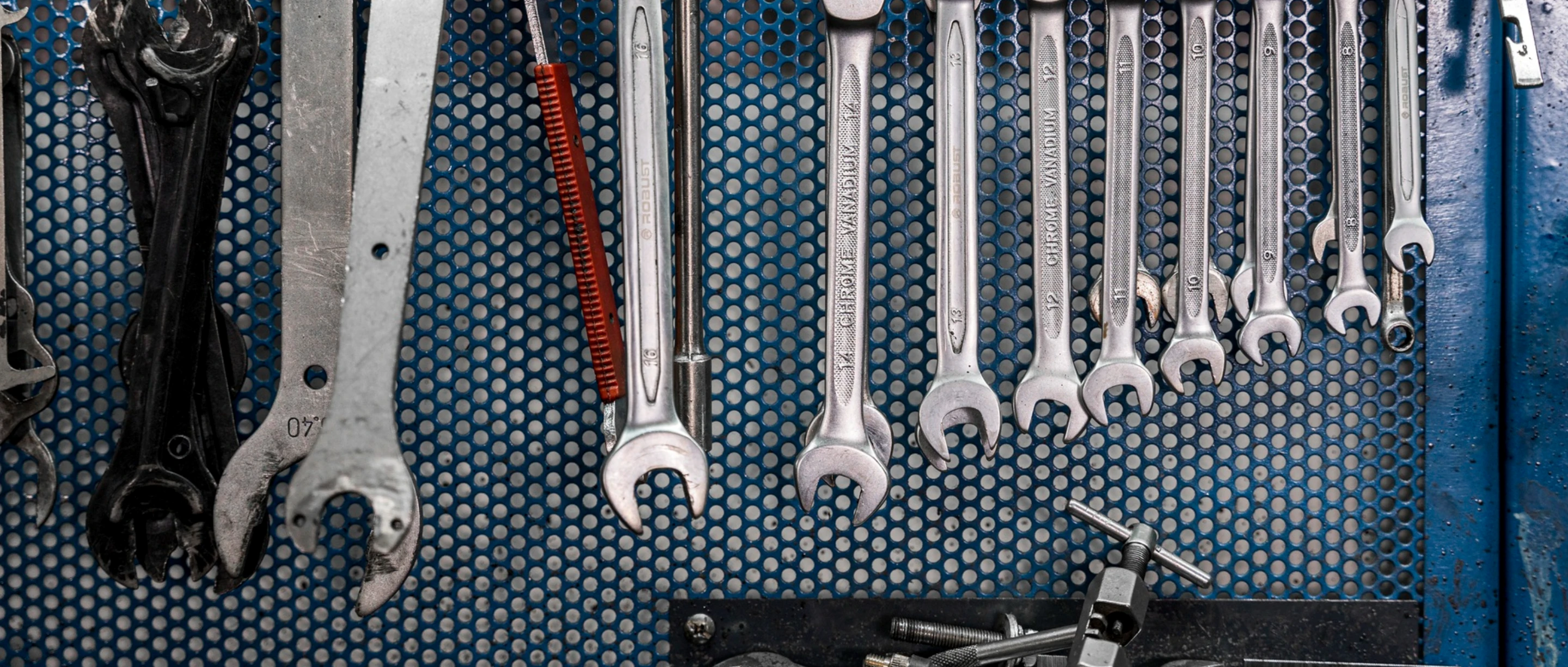Archive for April 2021When Your Air Bag Light Comes On (Illuminated Air Bag Light)Posted April 18, 2021 7:02 AMThere are some dashboard lights you should pay more attention to than others. One is the air bag light. If it's on and your vehicle is in an accident, your air bags probably won't do their job. Automakers began installing air bags in the late 1990's since they were mandatory in the United States, and manufacturers have included them in Canadian vehicles as well. Safety experts say using a seat belt in combination with an air bag gives passengers the best chance of surviving a crash and minimizing serious injury. The air bag warning light takes a few different forms. Some look like a picture of a belted passenger with an inflated air bag from a side view. Or there may be a warning light that says something like "Air Bag," "SRS" (for supplemental restraint system), "Airbag Deactivated" or "Air Bag Off." Different things cause the air bag light to come on. Your vehicle may have been in an accident during which, while the air bags didn't inflate, crash sensors were activated. Some of them may be connected with your vehicle's seat belts. A technician can reset the air bag if this has happened. Fuses can also blow which will cause the air bag light to come on. Another possible cause? A sensor that tells the vehicle's computer whether or not there is someone riding in the passenger front seat may be malfunctioning. Air bags are not for the do-it-yourselfer. They are sophisticated systems that require specialized training and equipment to diagnose and repair. If an air bag light is on, take it to a qualified service repair facility. One more thing: remember that safety experts have designed air bags to work in conjunction with seat belts for maximum protection in accidents. So always wear your seat belt. Car Doc On The Island I Had No Idea! (Four Things You Didn't Know About Vehicles)Posted April 4, 2021 8:15 AMBet you didn't know: Some of the earliest rearview mirrors were marketed as "Cop Spotters" so drivers would know when police were following them. Who wants a ticket, anyway? According to eBay Motors, Elmer Berger first patented a rearview mirror that was mounted on the front fenders, on the spare tire secured to the side of the car of at the top of the driver's door frame. About 80 percent of your vehicle is recyclable. So says The Balance. That means four-fifths of most vehicles can be recycled. Much of that recycling is done by automotive aftermarket recyclers. Between the U.S and Canada, they reclaim enough steel to produce 13 million new vehicles. The man who invented the first modern cruise control couldn't even drive a car because he was blind! His name, says Smithsonian.com, was Ralph Teetor. Blinded at a young age by a knife accident, Teetor was inspired to create a speed control by a couple of things. One, the U.S. imposed a mandatory 35 mph/55 kph during World War II to conserve fuel and tire rubber, and Teetor wanted drivers to go a safe and steady speed. Plus, a chauffeur who drove him around used to randomly slow down and speed up which irritated Teetor. So he invented a speed control to encourage drivers to drive at a more constant and safer speed. The first grooved tires were invented in 1904 by Continental. But that was a big improvement over the very first "tires" which were actually metal hoops that made riding in the first cars a pretty rough experience. The first rubber tires were solid rubber, not inflatable like today's tires. Things have come a long way. Modern tires are made with sophisticated rubber compounds that can deal with heat and cold. Plus their tread patterns help drivers get better traction on wet roads when it storms. Still, it's important to make sure yours have enough tread and are properly inflated for maximum safety and performance. Quite frankly, there's a lot we don't understand about the vehicles we drive. They're much more complicated than the old horse and buggy that preceded them. Leave your vehicle's maintenance and service to highly trained technicians who DO understand how to maintain, diagnose and repair today's modern, sophisticated vehicles. Car Doc On The Island | ||
SearchArchiveApril 2016 (16)May 2016 (5) June 2016 (4) July 2016 (4) August 2016 (5) September 2016 (4) October 2016 (5) November 2016 (4) December 2016 (4) January 2017 (5) February 2017 (4) March 2017 (4) April 2017 (5) May 2017 (4) June 2017 (4) July 2017 (5) August 2017 (4) September 2017 (3) October 2017 (5) November 2017 (4) December 2017 (3) January 2018 (5) February 2018 (4) March 2018 (4) April 2018 (5) May 2018 (4) June 2018 (4) July 2018 (5) August 2018 (4) September 2018 (5) October 2018 (4) November 2018 (4) December 2018 (5) January 2019 (5) February 2019 (4) March 2019 (5) April 2019 (4) May 2019 (4) June 2019 (5) July 2019 (4) August 2019 (4) September 2019 (5) October 2019 (4) November 2019 (4) December 2019 (5) January 2020 (5) February 2020 (4) March 2020 (5) April 2020 (4) May 2020 (5) June 2020 (4) July 2020 (4) August 2020 (5) September 2020 (4) October 2020 (4) November 2020 (5) December 2020 (4) January 2021 (6) February 2021 (4) March 2021 (4) April 2021 (4) May 2021 (5) June 2021 (4) July 2021 (4) August 2021 (5) September 2021 (4) October 2021 (5) November 2021 (4) December 2021 (4) January 2022 (6) February 2022 (4) March 2022 (4) April 2022 (4) May 2022 (5) June 2022 (4) July 2022 (5) August 2022 (4) September 2022 (4) October 2022 (5) November 2022 (4) December 2022 (4) January 2023 (5) February 2023 (4) March 2023 (4) April 2023 (5) May 2023 (4) June 2023 (4) July 2023 (5) August 2023 (4) September 2023 (4) October 2023 (5) November 2023 (4) December 2023 (5) January 2024 (5) February 2024 (4) March 2024 (5) April 2024 (4) May 2024 (4) June 2024 (5) July 2024 (4) August 2024 (4) September 2024 (5) October 2024 (4) November 2024 (4) December 2024 (5) January 2025 (4) February 2025 (4) March 2025 (5) April 2025 (4) May 2025 (4) June 2025 (5) July 2025 (4) August 2025 (5) September 2025 (4) October 2025 (4) November 2025 (5) December 2025 (4) January 2026 (4) | CategoriesKeys to a long lasting vehicle (2)Timing Belt (3)Fuel Economy (8)Brakes (13)Fluids (7)Maintenance (8)Tires and Wheels (3)Air Conditioning (9)Safety (1)Exhaust (8)Service Standards (3)Steering (10)What Customers Should Know (77)Alignment (6)Dashboard (1)Fuel System (5)Cooling System (6)Alternator (6)Battery (10)Auto Safety (5)Windshield Wipers (2)Battery Replacement (1)Wheel Bearings (1)Customer Detective Work (1)Shocks & Struts (2)Tire Rotation and Balancing (3)Winter Tires (1)Tires (8)Suspension (2)Inspection (4)TPMS (2)Drive Train (4)Automotive News (2)Safe Driving (1)Fuel Saving Tip: Slow Down (1)Winter Prep (1)Check Engine Light (2)Oil Change (6)Brake Service (6)Differential Service (1)Serpentine Belt (1)Service Intervals (1)Spark Plugs (1)Older Vehicles (1)Headlamps (3)Transmission (5)Transfer Case Service (1)PCV Valve (1)Engine Air Filter (2)Cabin Air Filter (2)Fuel Pump (1)Trip Inspection (2)Shocks and Struts (1) | |

AUTONET TV

Testimonials

Great service friendly people would be happy to return.~ Steve Rucinski, 01/19/2026

Car Doc are good people to work with. Work is done professionally and your work will be done on time.~ Ted Vaughn, 01/17/2026










